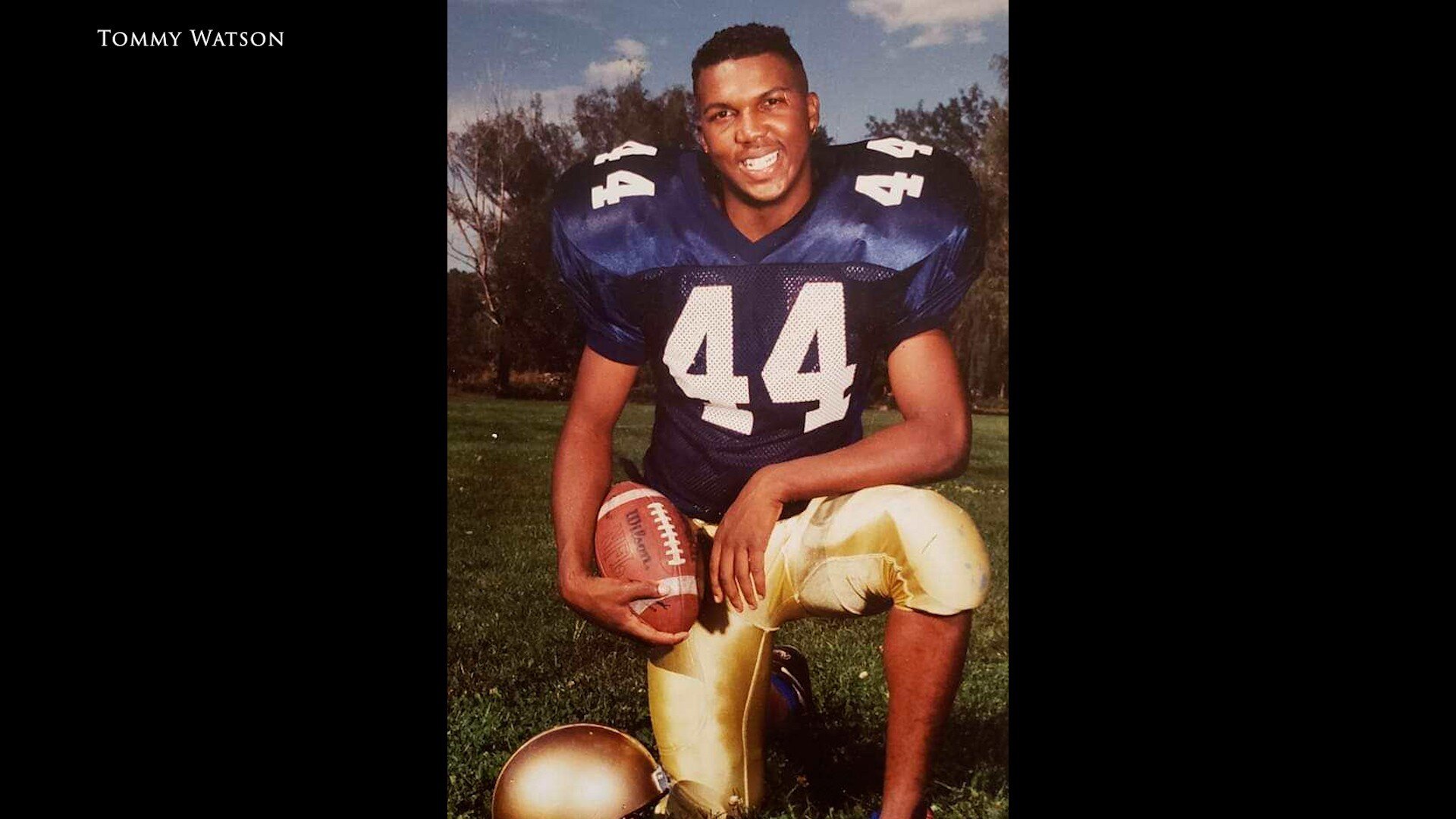From ‘below nothing’ to ‘Dr. Inspiration’: Struggle and success for Tommy Watson

DENVER — Tommy Watson has made a success of himself in a number of ways. He was a star athlete at Denver’s Mullen High School and a Big Ten college running back. He earned a doctor of education degree, became a school principal, and established himself as an author, a motivational speaker and executive coach.
But long before he became the 48-year-old Dr. Tommy Watson, he lived a nightmarish childhood in and around Denver’s Five Points — one where he felt “under siege every day.”
Watson’s parents were drug addicts and shoplifters for decades with stints in prison, he said, and violent gangs were a looming threat for a Black kid in poverty. He was constantly on the move, crammed with his brothers and sisters into tiny motel rooms, and spending time in foster care and crisis centers.
“We used to be so hungry that we would actually go in these grocery stores, steal food and run out … to feed ourselves because our parents would leave us for days by ourselves,” Watson told Rocky Mountain PBS recently as he drove around the streets of his childhood.
While in high school, Watson was homeless at times and would sometimes sleep on a friend’s floor.
Watson came from “below nothing,” his then-Mullen football coach, Pete Levine, once said.
Today, Watson — based in Charlotte, North Carolina — channels the bitterness of his youth into a message of uplift and success when he speaks to businesses, educators, students and other audiences. He brands himself as “Dr. Inspiration.”
“I had to learn how to dream beyond my circumstances,” Watson said.
And he is working on producing a feature-length film about his life experiences called “Resilient,” drawing on his autobiographical book, “A Face of Courage.” An earlier, shorter version was shown in film festivals in 2019.
‘Basketball literally saved my life’
At one point as a kid in Five Points, eager to “get involved in something” that would take him out of his miserable home life, Watson said he felt the lure of gangs. But then something came along to steer him away from that path: Sports.
“I was living with my aunt and she got me involved in basketball,” he said, “and basketball literally saved my life, because many of the things I was looking for in the world of gangs — a sense of belonging, great male mentors, other kids with similar goals — I received from playing sports."

Later Watson met Coach Levine from Mullen, which was seeking out talented but overlooked recruits. Levine was “on the lookout for a kid who wants to be something other than a thug,” then-Denver Post columnist Tina Griego wrote in 2010.
In 1988, Watson was accepted at the Catholic private school as a participant in its then-new De La Salle program, offering extra academic support for kids who need it.
Watson went on to star as a football running back for the Mullen Mustangs, and with the school's support and counseling, his grades improved. Then came a scholarship to the University of Minnesota — and dreams of a ticket to the National Football League.
Watson’s challenges didn’t end when he left Denver in 1992. While playing football at Minnesota, Watson injured his back lifting weights, thwarting his NFL dreams.
But another dream loomed: Becoming an educator. Eventually he became principal in a school system near the Twin Cities. Then came his move to North Carolina and his current profession as a speaker and trainer. He remains connected to the Mullen High community and from time to time returns to Colorado, where a brother and sister still live.
Watson has a lot to say. At times his words overflow with feeling as he speaks of his childhood and his hopes for those who hear his message.

And he has advice for the Five Points kids he grew up with and those like them.
“Whether you’re a Black male, female, [it] doesn’t matter what your racial background is, doesn’t matter what your sexual orientation is. Don’t let anyone put you in a box,” he said. “Know that you can achieve whatever it is you want to achieve, have a vision for yourself, know that in many situations you’re not the first to do it — and if you are the first to do it, great, be that pioneer — but don’t let anyone put you in a box.”
Brian Willie is the content production manager at Rocky Mountain PBS. You can reach him at brianwillie@rmpbs.org.